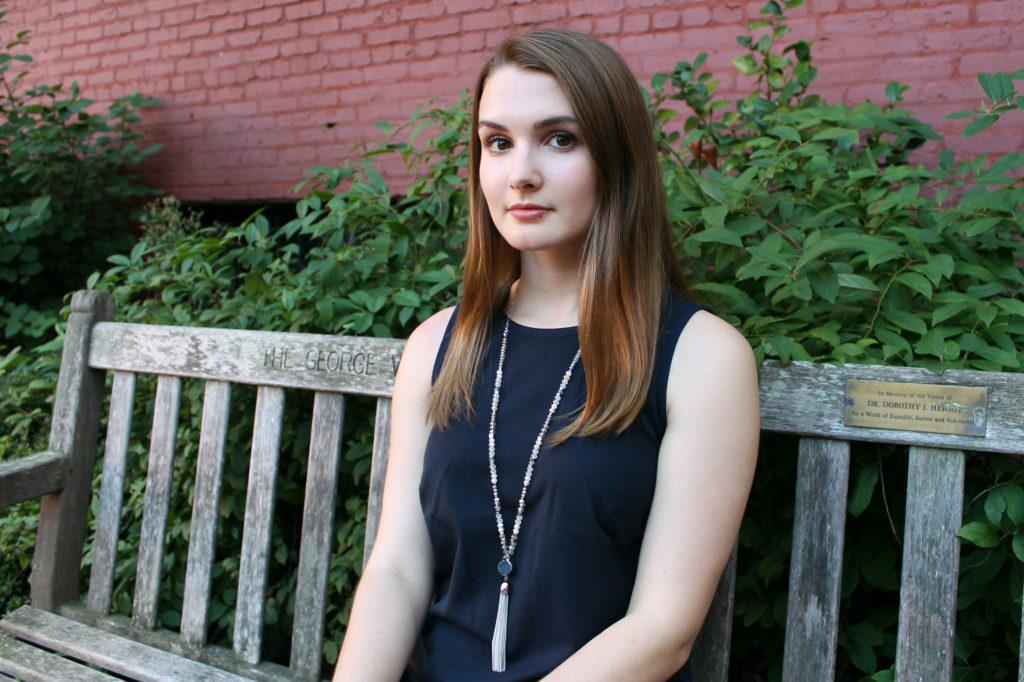When junior Diego Rebollar decided to run for a Student Association Senate seat in 2017, he focused his campaign on issues he said would benefit students directly, like increasing tutoring sessions.
But after reaching out to dozens of student groups – including several left-leaning organizations – for endorsements and receiving no support, he said it became clear to him that his drive to improve the school was overshadowed by his reputation as an active member of the College Republicans.
“I do think that the political ideology has an impact on how a lot of them make their decisions and how people do end up voting, which I think is a shame because you shouldn’t focus on your party identification when you’re running for a school election,” Rebollar said.
More than 15 conservative students said in interviews that Republicans often don’t run for positions in the SA at all because they feel their opinions won’t be valued in a largely liberal body. But SA leaders said political affiliations don’t factor into their work – and that their debates often don’t tie into liberal or conservative issues.
Caroline Hakes, the director of public relations for the College Republicans, said no current members serve on the SA Senate or in the cabinet. She said the liberal nature of the SA mirrors the makeup of the student body, which has Republican students outnumbered by Democrats.
She added that Republicans could balance out opposing perspectives, but it’s often difficult to enter an organization where Republicans have often been outcasts. Currently, Hakes said members of the group only interact with the SA to request allocations through the finance committee.
Other than monetary requests, she said the two organizations interact when the SA co-sponsors speaker events with College Republicans or when the group speaks out against SA actions, like when they opposed a controversial senate vote on a pro-Palestinian divestment resolution last spring.
“I think that dissuades conservative students because they think perhaps that their voice wouldn’t matter because they would be in the minority, and so the resolutions wouldn’t pass whether they’re on the body or not,” Hakes said.
Adam Johnson, a senior and former College Republicans member, said that when he ran for SA president in 2017, College Republicans did not endorse him even though he was an active member at the time because the group didn’t think he “had a chance” based on his conservative views.
He said that while he campaigned, he reached out to student organizations on both sides of the aisle, but few left-leaning organizations would talk with him about his ideas for the SA, like fixing the blue light security system.
“I still met with them because they’re still a huge part of the school and most people here are liberal, so I’m not going to just forget about them,” he said.
John Olds, the College Republicans treasurer, said conservative students might not run for an SA seat because they’re nervous about not being elected or not being listened to if they do get a seat – not because the topics discussed are liberal.
“If you are one Republican voice in an SA that’s entirely Democratic, your voice and your sway and power might not carry weight,” Olds said.
Senior Jared Bulla, a conservative student, said it’s not surprising that the SA is a more left-leaning group because the student body is generally liberal. SA members should reflect their constituents but they currently lack representation for right-leaning students, he said.
“There needs to be more conservatives on the SA because there really needs to be more ideological diversity there generally,” he said. “Does there need to be a lot more? No, but more than one or two would probably be appropriate.”
SA leaders defended the body’s makeup and said the SA doesn’t make decisions based on political ideology but does consider how their choices will impact their constituents.
Sen. Tyrell Garner, GSEHD-G, said that while he can’t speak for the political ideologies of SA members as a whole, the organization supports and advocates for students from all racial and ethnic backgrounds, so it is “liberal in a sense.”
“Everybody has their view of things, but I think at the end of the day, the common goal is to serve the students and I think that’s what student leaders do,” he said.
SA President Ashley Le said the SA decides what issues it will tackle based on student concerns, not senators’ political beliefs. She said the issues the SA Senate votes on – like the divestment resolution – are born from senators listening to and then bringing up what their constituents are struggling with on campus.
“Whether it sounds like it came from a liberal background or it sounds like it came from a conservative background, it is because there are students who are being affected by it,” Le said.
She said that students of all political beliefs are interviewed when they apply to open cabinet or senate positions on the SA. A passion for improving student life through the SA is valued over hiring students based on their political views, she said.
Le declined to disclose the political affiliations of her cabinet members, saying the information is personal.
“We don’t put a cap on how many liberal students can join or how many conservative students can join, we don’t put a cap on who can join or who can not join solely based on their party ideologies,” Le said.
Ojani Walthrust, the SA’s executive vice president, said a diversity of student voices helps increase constructive dialogue within the organization.
“People from different political backgrounds should feel welcome to join the SA and push for advocacy on topics that they are passionate about regardless their ideology,” Walthrust said in an email.
Sarah Roach contributed reporting.





